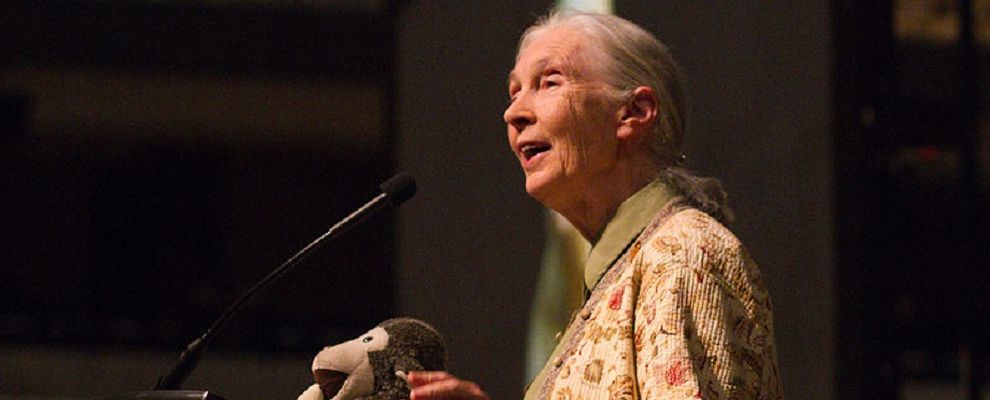Design is a thought activity: we should not replace it with a mere “optimizing” approach, because it’s from imperfections that talent emerges.

What do we have in common with chimpanzees? Is it possible to look at our most “ancient” relatives to find new perspectives of research on our language, our communication and, why not, to understand how we can improve it? We talked about this with Jane Goodall, the lady of world ethology, founder of the Jane Goodall Institute and UN messenger of peace, who has always broken the patterns of science.
Your studies brought a redefinition of the concept of animal identity: we could reverse the perspective and ask ourselves what is “primordial” in human behaviour. Do you think we could understand ancestral language roots, we are not aware of?
Although chimpanzees and apes are cognitively able to communicate in ways which resemble human language, and can obviously understand abstract symbols, they haven’t in nature evolved the sort of language that we use to communicate with words. That, to me, has created the biggest difference between us and other animals, it has led us to being able to learn from the past, through stories handed down or written histories, has led us being able to plan for the distant future and perhaps most importantly we can discuss: we can bring people with different viewpoints to discuss a single problem and try to search for a solution. And we can also teach our children about things that are not present. So, to me, chimpanzees are capable of this kind of communication, if not verbally, intellectually they can. However not everybody would agree with me.
Can primates’ behaviour teach us something about communication, also under the digital revolution (such as dematerialization of human relationships)?
I certainly think we can learn from them the importance of physical contact, touch and gesture, because that is something that humans have always used, that we share that with them. As you say, the digital age is separating people, so they communicate without that touch, and if you say something hurtful you can immediately say “Oh, I’m sorry” and reach out and touch them or embrace them if it’s a child, and digitally we can’t do that.
What is today the role of science and scientific dialectic in society? Is it still a source of fascination or just a topic like many others?
I think one of the problem with science today, is the idea that the good scientist must be objective, must show no empathy with his subject. You know I have a lot to do with young people, and a lot of them are turned away from science because it’s perceived as a very cold discipline.
Certainly from my perspective I find this is not at all a nice way of thinking. I was told when I was talking about the chimpanzees that I shouldn’t give them names, they should have numbers, that’s more scientific, and I absolutely couldn’t talk about them having minds capable of problem solving or feelings and not personality either. I learned from my dog as a child that wasn’t true, and I was able to stick to my conviction and I think chimpanzees actually helped to open the scientific minds at that time.
(Photo by Mark Schierbecker - CC Creative Commons Wikimedia)